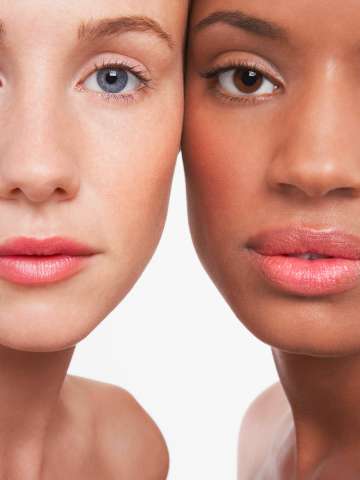Liposuction Bellevue: Target Persistent Fat with Leading Plastic Surgeons
Liposuction Bellevue: Target Persistent Fat with Leading Plastic Surgeons
Blog Article
A Deep Study the Typical Reason for Seeking Aesthetic Surgical Treatment: Unpacking the Desire for Adjustment and Self-Improvement

Social Stress and Beauty Criteria
Often, societal pressures and prevailing beauty standards play a considerable role in individuals' decisions to seek plastic surgery (liposuction bellevue). In contemporary culture, graph heavily influences personal perceptions of attractiveness, typically continued by media, star endorsements, and social platforms. These channels regularly advertise idealized versions of elegance, leading people to internalize these standards and evaluate their self-worth against them

In addition, these stress are not limited to details demographics; they influence people throughout numerous ages, sexes, and histories, highlighting the prevalent nature of elegance standards. This prevalent impact increases vital concerns regarding the ethics of cosmetic surgical treatment and the implications of social requirements on individual selections. Eventually, understanding these stress is vital for promoting a more comprehensive interpretation of appeal that commemorates diversity.
Personal Experiences and Transformative Stories
Lots of people that undertake plastic surgery record transformative experiences that extend beyond simple physical modifications. For several, these treatments act as a stimulant for improved self-esteem and a renewed feeling of identity. People often define sensation liberated from long-lasting insecurities, resulting in increased self-confidence in both personal and specialist realms.
Take, as an example, the tale of a girl that underwent breast enhancement after years of sensation uncomfortable concerning her appearance. Post-surgery, she reported not only a newly found convenience in her body however additionally a significant enhancement in her social life and career chances. Likewise, a middle-aged guy who chose to undertake a facelift shared exactly how the procedure renewed his overview on life, motivating him to pursue new rate of interests and partnerships.

Mental Variables Behind Plastic Surgery
Countless psychological variables add to the decision to go through cosmetic surgical procedure, showing deeper psychological and psychological wellness factors to consider. Individuals typically pursue surgical enhancements as a means to address feelings of inadequacy, reduced self-worth, or discontentment with their look. These emotional inspirations can be rooted in past experiences, social contrasts, or individual goals.
Body picture distortion is a widespread problem, where people regard their physical qualities in an exaggeratedly unfavorable light. This distortion can bring about compulsive thoughts regarding regarded defects, triggering the desire for medical modification as a remedy. Additionally, the pursuit of excellence and societal stress can magnify these feelings, pressing individuals towards cosmetic procedures in hopes of achieving an idealized version of themselves.
Additionally, the idea of self-improvement plays a crucial duty. Several people check out plastic surgery as a pathway to improve their lifestyle, believing that improved look will result in enhanced social approval, better connections, or improved occupation chances. Ultimately, the mental aspects behind plastic surgery highlight the complicated interaction between private self-perception and outside impacts, disclosing the multifaceted nature of the desire for modification.
The Function of Media in Perception
In today's culture, media plays an essential role fit assumptions of elegance and self-regard. Through numerous platforms-- social networks, tv, and advertising-- idyllic requirements of appeal are often shared, affecting private ambitions and self-image. These representations frequently highlight narrow definitions of good looks, mainly featuring younger, slim, and electronically improved photos, which can create unrealistic standards for individuals aiming to adjust.
The effect of media is additional exacerbated by the pervasive nature of social media sites, where users are pounded with curated content that highlights cosmetic improvements, endorsing a culture of contrast. This consistent exposure can bring about feelings of inadequacy amongst customers, prompting them to think about plastic surgery as a method of achieving the regarded ideal. Research study shows that individuals who involve with these media depictions are most likely to share discontentment with their look, original site enhancing the desire for medical treatments.
Additionally, the normalization of plastic surgery in media narratives can desensitize target markets, framing such procedures as commonplace and even essential for social acceptance. Thus, the media's portrayal of charm not only influences specific selections regarding plastic surgery but also contributes to a broader societal dialogue about self-worth and identity.
Ethical Considerations and Future Trends
Amidst the expanding popularity of cosmetic surgical treatment, ethical considerations surrounding the technique have come to be increasingly popular. As the demand for procedures climbs, so as well do worries relating to notified permission, the psychological inspirations of individuals, and the potential for exploitation by cosmetic surgeons. It is important for professionals to guarantee that clients fully recognize the dangers and benefits, along with the ramifications of their options, to foster a liable strategy to cosmetic improvements.
Additionally, the influence of social media sites and appeal standards elevates concerns concerning the influence on mental wellness, especially amongst prone populations. As understanding of body image concerns grows, moral method necessitates a cautious assessment of the inspirations behind surgical treatments. Specialists should stabilize person wishes with ethical go to this site obligation, ensuring that choices are rooted in authentic self-improvement rather than societal pressures.
Aiming to the future, fads might move in the direction of non-invasive and technologically advanced treatments, stressing individual safety and security and satisfaction. Furthermore, the unification of psychological assessments can help deal with underlying problems prior to medical intervention. The cosmetic surgery area need to adjust to these moral challenges while promoting a society of openness and self-acceptance, ultimately prioritizing the health of people.
Conclusion
In conclusion, the quest of cosmetic surgery is influenced by a confluence of social stress, individual experiences, and mental elements. As moral considerations evolve, future trends in cosmetic surgical procedure will likely show continuous social websites discussions bordering self-improvement and private identity.
Often, social pressures and dominating appeal standards play a significant duty in people' decisions to pursue cosmetic surgical procedure. liposuction bellevue. Eventually, these transformative stories highlight the multifaceted factors individuals look for cosmetic surgical procedure, intertwining individual growth with the pursuit of visual improvement
Many people watch cosmetic surgical treatment as a pathway to improve their quality of life, thinking that boosted appearance will lead to enhanced social acceptance, far better relationships, or improved career chances. Inevitably, the psychological elements behind cosmetic surgical treatment underscore the complex interaction in between individual self-perception and external influences, exposing the complex nature of the desire for change.
As honest factors to consider advance, future trends in cosmetic surgical treatment will likely mirror ongoing social discussions surrounding self-improvement and specific identification. liposuction bellevue.
Report this page